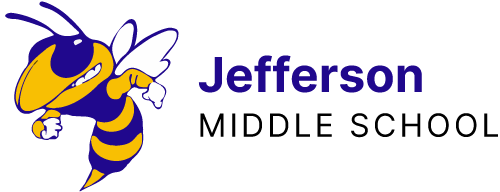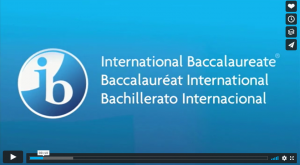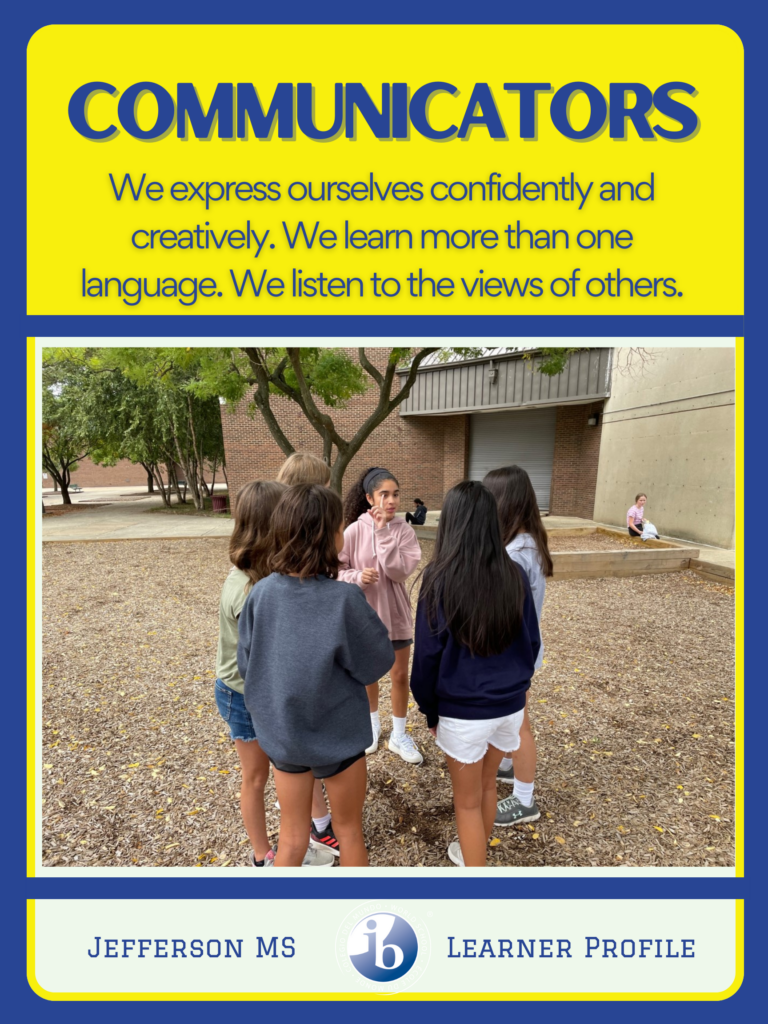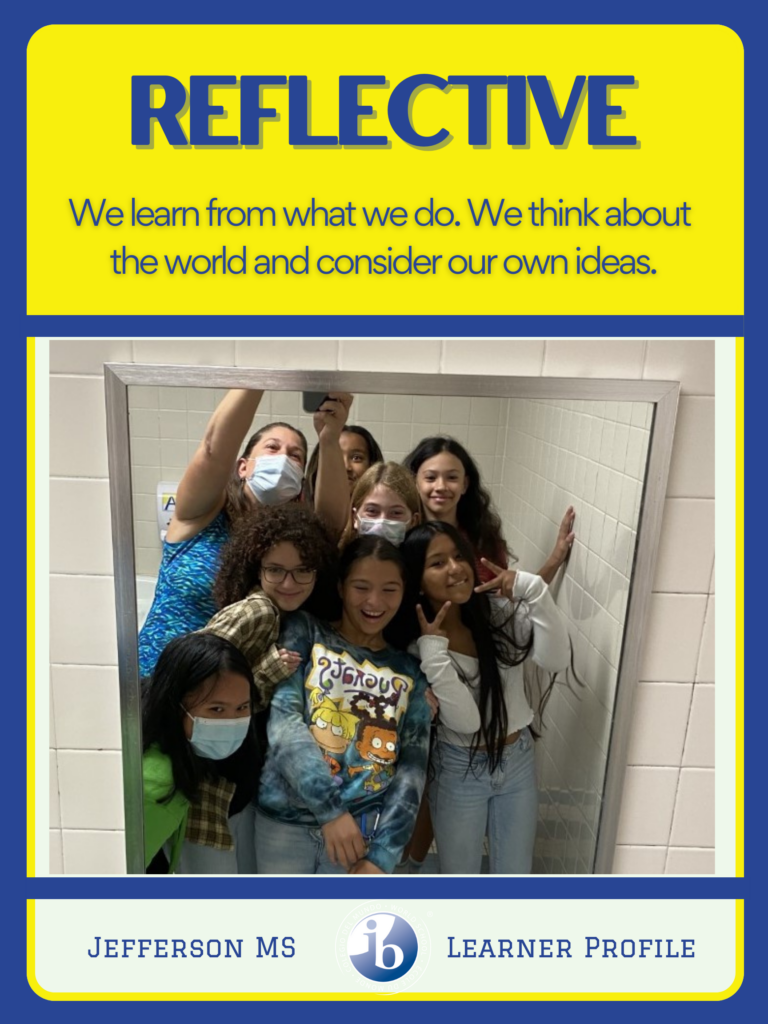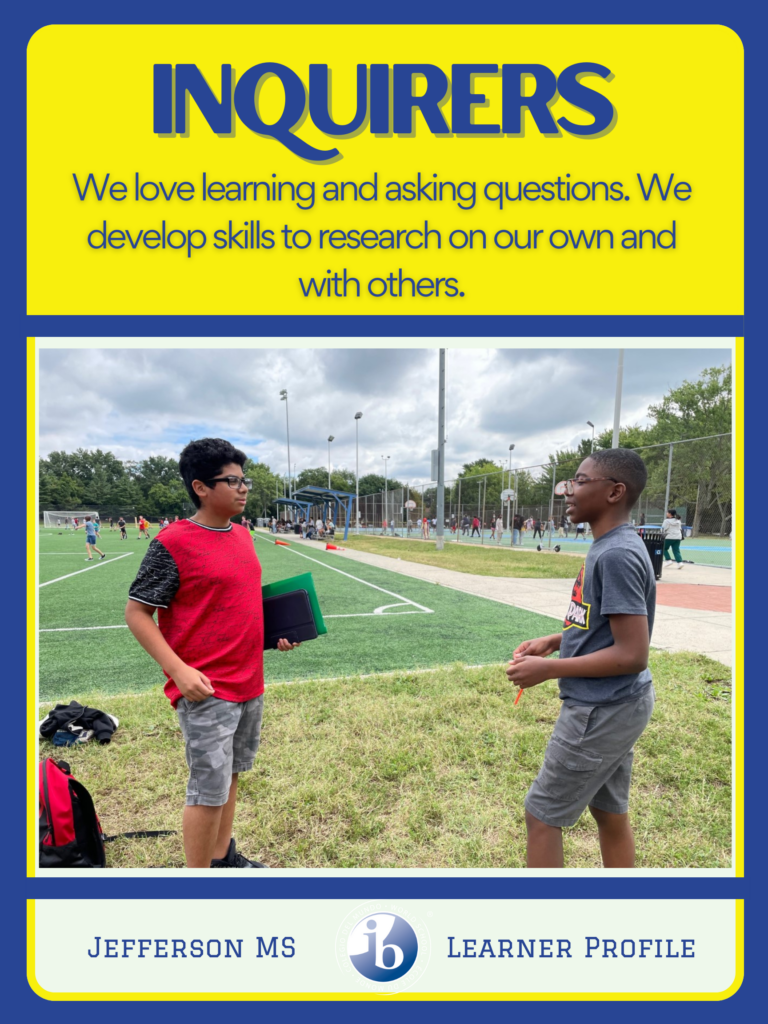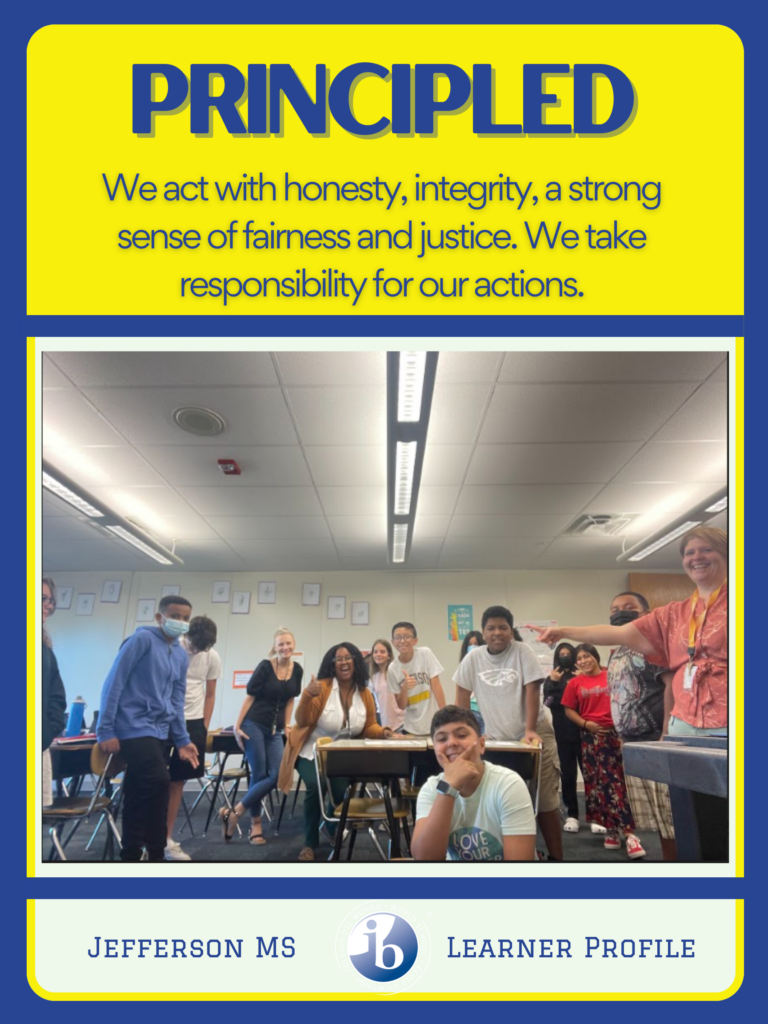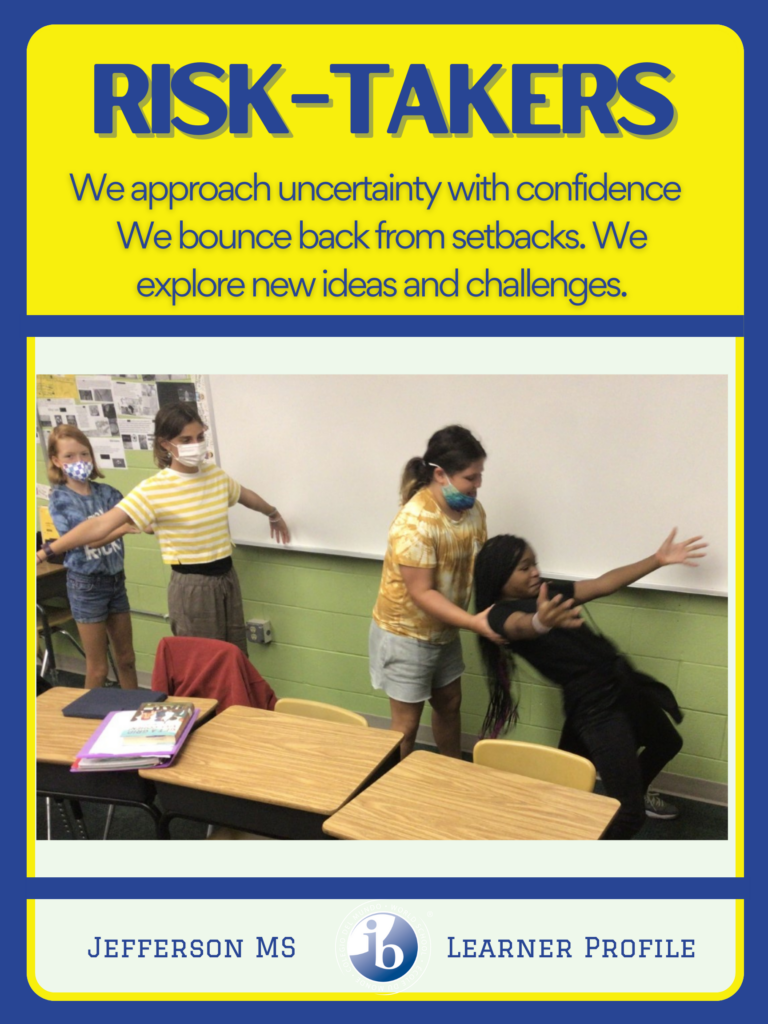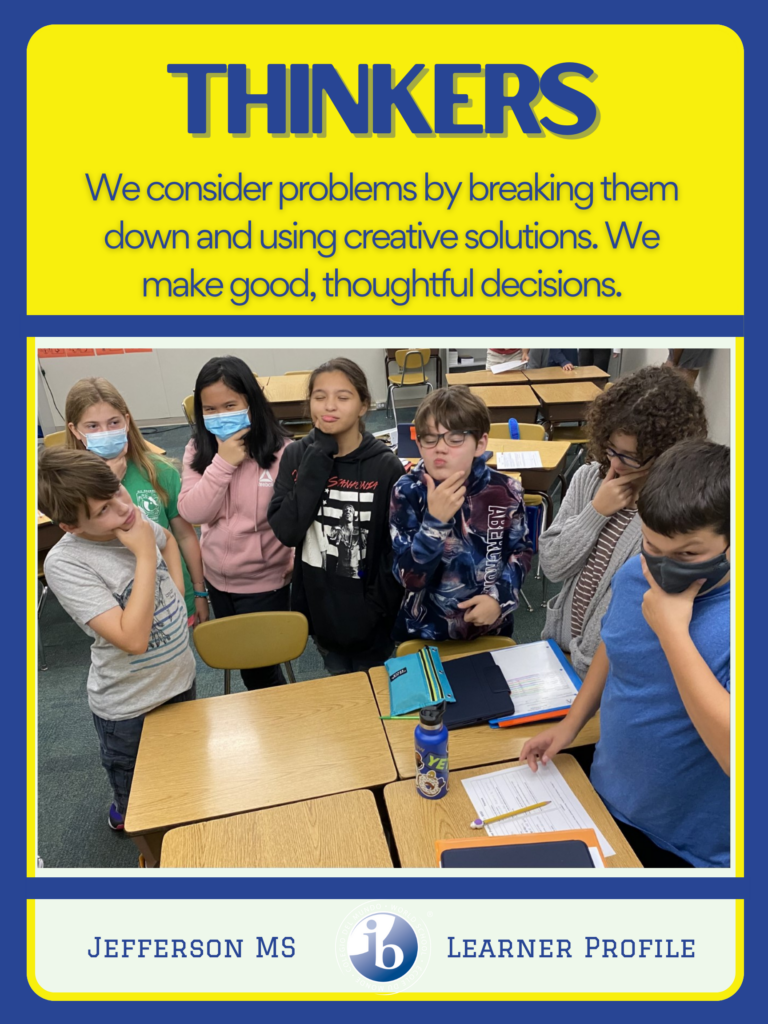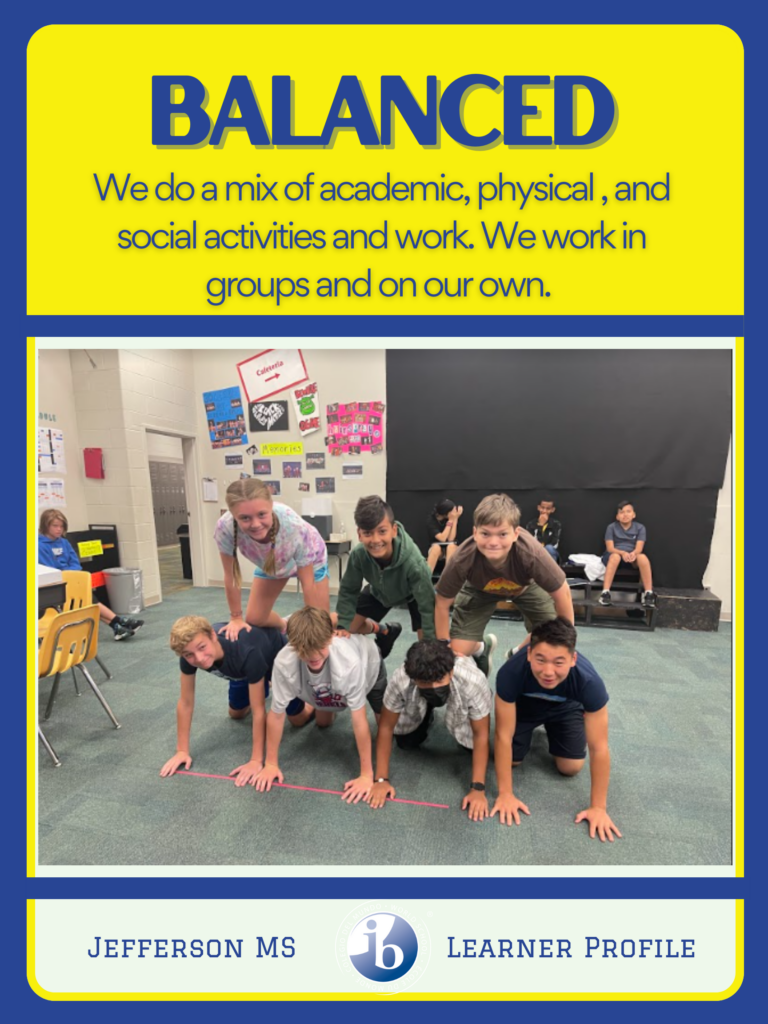IB Mission Statement
The International Baccalaureate aims to develop inquiring, knowledgeable and caring young people who help to create a better and more peaceful world through intercultural understanding and respect.
To this end the organization works with schools, governments and international organizations to develop challenging programmes of international education and rigorous assessment.
These programmes encourage students across the world to become active, compassionate and lifelong learners who understand that other people, with their differences, can also be right.
The IB learner profile is the IBO mission statement translated into a set of learning outcomes for the 21st century. These outcomes also describe the attributes of the internationally-minded student.
The IB Learner Profile
The aim of all IB programs is to develop internationally minded people who, recognizing their common humanity and shared guardianship of the planet, help to create a more peaceful world.
IB learners strive to be:
- Caring
- Knowledgeable
- Inquirers
- Thinkers
- Communicators
- Principled
- Open-minded
- Risk-takers
- Balanced
- Reflective
Learner Profile Attributes: A Guide
Caring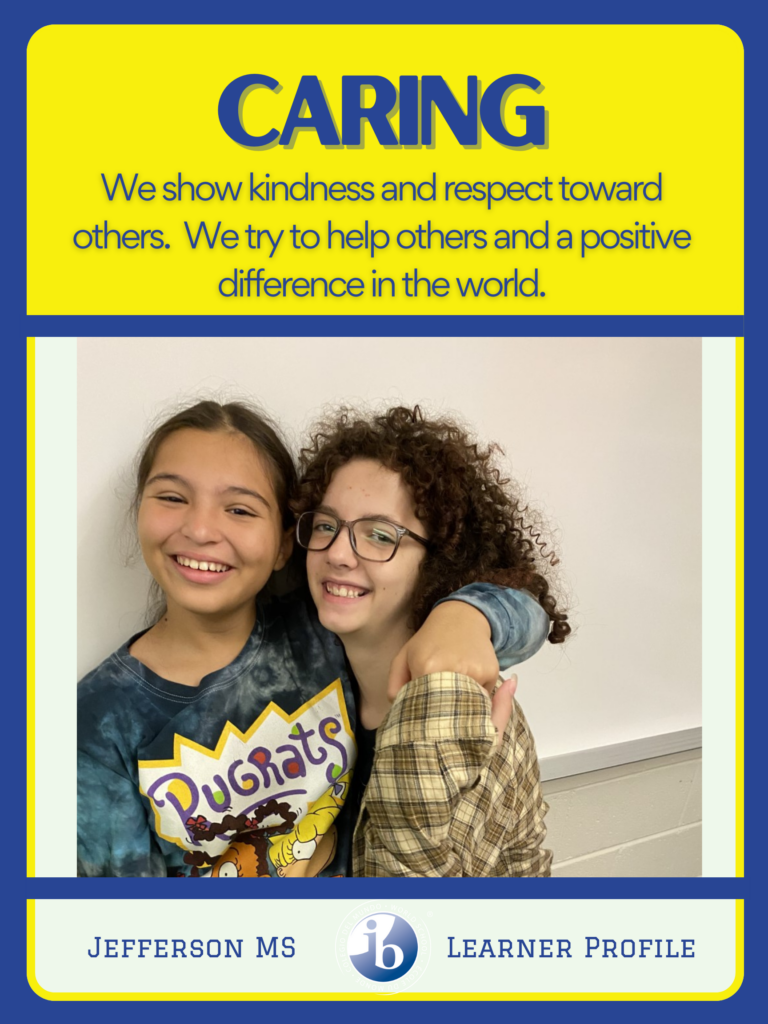
Simple definition: Showing kindness for others and service to the world.
Complex definition: We show empathy, compassion and respect. We have a commitment to service, and we act to make a positive difference in the lives of others and in the world around us.
Students who are caring want people around them to be happy and are sensitive to their needs. They think about the world and work to take care of their community and the environment. They remember to treat others how they themselves would like to be treated. How can you be more caring at home? Model the caring behavior you would like to see in the world. Using kind words, helping people without being asked, being an active listener all show that you care about people. Think about how your family can get involved with community organizations. Reduce, Reuse & Recycle. Consider reading a book, spend some time considering how the people in the book acted. Was someone in the book caring? All of the time or just some of the time? Were all of the characters in the book caring or just some of them? Some books to consider:
- Lily’s Purple Plastic Purse by Kevin Henkes
- The Giving Tree by Shel Silverstein
- Yertle the Turtle by Dr. Seuss
- The Grouchy Ladybug by Eric Carle
Knowledgeable 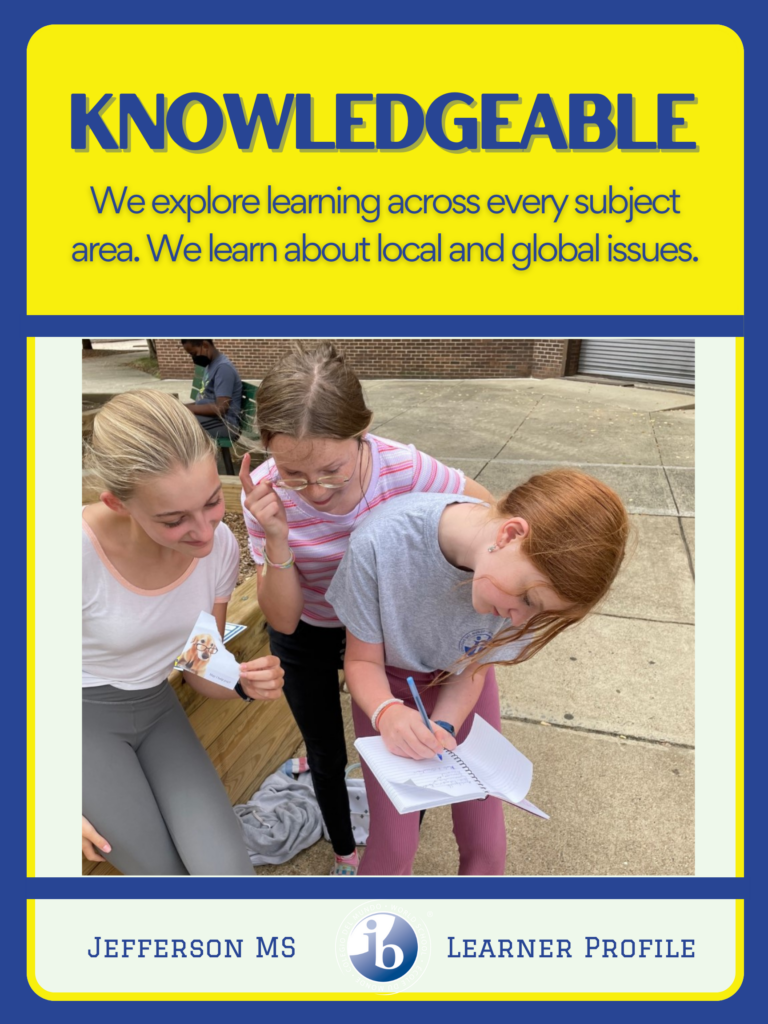
Simple definition: Understand ideas and information across many subjects.
Complex definition: We develop and use conceptual understanding, exploring knowledge across a range of disciplines. We engage with issues and ideas that have local and global significance.
Students who are knowledgeable have explored concepts and can remember what they have learned. They can draw on this knowledge and apply it in new situations. How can you be knowledgeable at home? Read books at home that correspond with the topics being covered in school. In particular, books consider reading books in a different language. It will help you make meaningful, lasting connections to what is being taught in their classroom. Try to stay informed with current event by reading a variety of news sources or watching programs like CNN10.
Communicators
Simple definition: Talk, write, and listen.
Complex definition: We express ourselves confidently and creatively in more than one language and in many ways. We collaborate effectively, listening carefully to the perspectives of other individuals and groups.
Students who are communicators are learning to communicate in more than one language. They can express their ideas by speaking, drawing and writing. They can also communicate using mathematical language and symbols. Stay in touch with relatives and friends who live in other countries by writing letters, using Zoom or sending messages through apps. Work on actively listening to others. This is an important part of communicating with others.
Reflective
Simple definition: Consider ideas, lessons learned.
Complex definition: We thoughtfully consider the world and our own ideas and experience. We work to understand our strengths and weaknesses in order to support our learning and personal development.
Students who are reflective know what they are good at and what they are not good at YET. Think about your classes and other activities. and they make changes where they can. Consider goals that you could set for the next quarter or end of the year. It is helpful to use the SMART acronym: Specific, Measurable, Achievable, Rigorous, Time-Bound. Choosing goals that are detailed, that can be measured, that are doable, that are challenging and and are completed by a specific date can really help raise our performance at whatever task we are involved in. Of course, after the goal date has been passed you can consider the lessons learned.
Inquirers
Simple definition: Wonder, questions.
Complex definition: We nurture our curiosity, developing skills for inquiry and research. We know how to learn independently and with others. We learn with enthusiasm and sustain our love of learning throughout life.
Students who are inquirers are curious about the world. They can work on research independently. They love learning and discovering new things and will carry this love of learning with them throughout life. Visit our library to borrow books that explore fascinating, diverse topics. Admit when you don’t know the answer to a problem or a question and seek out answers.
Open-Minded
TJMS: Open-Minded poster
Simple definition: Enjoy our own culture and others; enjoy new ideas.
Complex definition: We critically appreciate our own cultures and personal histories, as well as the values and traditions of others. We seek and evaluate a range of points of view, and we are willing to grow from the experience.
An open-minded student knows that all people are different. They listen to the points of view of others and consider many possibilities before making a decision. They celebrate the differences that make all people unique. How can you be more Open-Minded? Try new things – new foods, new games and new activities. Explore different festivals, celebrations and traditions. Encourage your child to really listen to others when they speak. Learn literature about many different cultures. Be sure that it is appropriate and reflects the culture in an appropriate way.
Principled
Simple definition: Act on values, do what’s right.
Complex definition: We act with integrity and honesty, with a strong sense of fairness and justice, and with respect for the dignity and rights of people everywhere. We take responsibility for our actions and their consequences.
Students who are principled have a sense of fairness and are honest with themselves and with others. They understand that sometimes there are rules and they follow them. They have an understanding of moral reasoning. How can parents help to develop students who are Principled at home? Involve your child in deciding on the rules for a game or activity and then ensure that they stick to the ones that have been decided upon. Encourage your child to play games that involve teams. Discuss with your child the qualities of a team player. What sort of person would they want on their team? When your child wins a game insist that he or she is a well-mannered winner. They might thank their opponent or shake hands with them if it’s appropriate. When playing a game, don’t change the rules or let your child win. Being a gracious loser is just as important as being a good winner.
Risk-Taker
Simple definition: Take on fears, ready for change.
Complex definition: We approach uncertainty with forethought and determination; we work independently and cooperatively to explore new ideas and innovative strategies. We are resourceful and resilient in the face of challenges and change.
Students who are risk-takers are daring and try new things. They try to solve big or new problems. They have the bravery to tell people what they think is right. How can you be a better Risk-Takers? Consider the following activities:
- Offer an opinion in class.
- Talk to someone new.
- Order or cook something new for lunch or dinner.
- Try an activity they have not tried.
Be careful to explain to your child the difference between being a risk-taker by trying new things and doing dangerous things.
Thinkers
Simple definition: Consider actions and hard problems, try to be fair.
Complex definition: We use critical and creative thinking skills to analyse and take responsible action on complex problems. We exercise initiative in making reasoned, ethical decisions.
Students who are thinkers work to solve challenging problems. They can imagine multiple solutions to complex and difficult. Thinkers make good decisions and can predict the outcomes of their actions. Consider questions like these:
- “Do you have any ideas about how we might begin?”
- “How can we do this differently?”
- “What other ways can we show that?”
- “Why do you think that?” ” How did you figure that out?”
Balanced
TJMS: Balanced poster.
Simple definition: Weigh different parts of our lives and needs of others.
Complex definition: We understand the importance of balancing different aspects of our lives—intellectual, physical, and emotional—to achieve well-being for ourselves and others. We recognize our interdependence with other people and with the world in which we live.
Students who are BALANCED are healthy and are aware that eating properly and exercising is important in their lives. They understand that it is important to have a balance between the physical and mental aspects of their bodies. They spend time doing many different things. How can parents help to develop students who are well-balanced at home? Participate in a wide variety of activities. Too much time in front of a screen is not great. Take time for quiet reading or reflecting; spend a lot of time drawing or helping out around the home, get some exercise and play. Develop a regular routines for academics, exercise, reading and socializing.
 Contact
Contact  Calendars
Calendars Careers
Careers Engage
Engage  District
District
